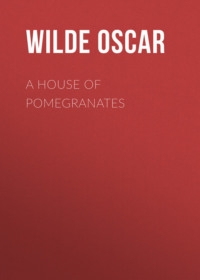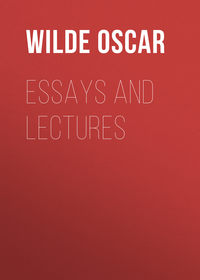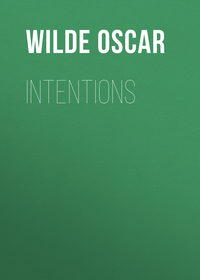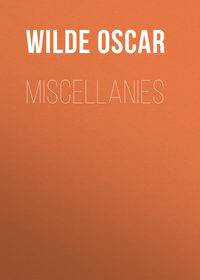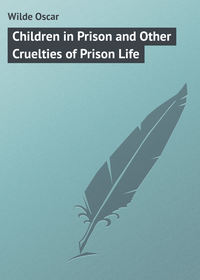 полная версия
полная версияReviews
Wordsworth, in one of his interesting letters to Lady Beaumont, says that it is ‘an awful truth that there neither is nor can be any genuine enjoyment of poetry among nineteen out of twenty of those persons who live or wish to live in the broad light of the world – among those who either are, or are striving to make themselves, people of consideration in society,’ adding that the mission of poetry is ‘to console the afflicted; to add sunshine to daylight by making the happy happier; to teach the young and the gracious of every age to see, to think, and feel, and, therefore, to become more actively and securely virtuous.’ I am, however, rather disposed to think that the age in which we live is one that has a very genuine enjoyment of poetry, though we may no longer agree with Wordsworth’s ideas on the subject of the poet’s proper mission; and it is interesting to note that this enjoyment manifests itself by creation even more than by criticism. To realise the popularity of the great poets, one should turn to the minor poets and see whom they follow, what master they select, whose music they echo. At present, there seems to be a reaction in favour of Lord Tennyson, if we are to judge by Rachel and Other Poems, which is a rather remarkable little volume in its way. The poem that gives its title to the book is full of strong lines and good images; and, in spite of its Tennysonian echoes, there is something attractive in such verses as the following:
Day by day along the Orient faintly glows the tender dawn,Day by day the pearly dewdrops tremble on the upland lawn:Day by day the star of morning pales before the coming ray,And the first faint streak of radiance brightens to the perfect day.Day by day the rosebud gathers to itself, from earth and sky,Fragrant stores and ampler beauty, lovelier form and deeper dye:Day by day a richer crimson mantles in its glowing breast —Every golden hour conferring some sweet grace that crowns the rest.And thou canst not tell the moment when the day ascends her throne,When the morning star hath vanished, and the rose is fully blown.So each day fulfils its purpose, calm, unresting, strong, and sure,Moving onward to completion, doth the work of God endure.How unlike man’s toil and hurry! how unlike the noise, the strife,All the pain of incompleteness, all the weariness of life!Ye look upward and take courage. He who leads the golden hours,Feeds the birds, and clothes the lily, made these human hearts of ours:Knows their need, and will supply it, manna falling day by day,Bread from heaven, and food of angels, all along the desert way.The Secretary of the International Technical College at Bedford has issued a most interesting prospectus of the aims and objects of the Institution. The College seems to be intended chiefly for ladies who have completed their ordinary course of English studies, and it will be divided into two departments, Educational and Industrial. In the latter, classes will be held for various decorative and technical arts, and for wood-carving, etching, and photography, as well as sick-nursing, dressmaking, cookery, physiology, poultry-rearing, and the cultivation of flowers. The curriculum certainly embraces a wonderful amount of subjects, and I have no doubt that the College will supply a real want.
* * * * *The Ladies’ Employment Society has been so successful that it has moved to new premises in Park Street, Grosvenor Square, where there are some very pretty and useful things for sale. The children’s smocks are quite charming, and seem very inexpensive. The subscription to the Society is one guinea a year, and a commission of five per cent. is charged on each thing sold.
* * * * *Miss May Morris, whose exquisite needle-work is well known, has just completed a pair of curtains for a house in Boston. They are amongst the most perfect specimens of modern embroidery that I have seen, and are from Miss Morris’s own design. I am glad to hear that Miss Morris has determined to give lessons in embroidery. She has a thorough knowledge of the art, her sense of beauty is as rare as it is refined, and her power of design is quite remarkable.
Mrs. Jopling’s life-classes for ladies have been such a success that a similar class has been started in Chelsea by Mr. Clegg Wilkinson at the Carlyle Studios, King’s Road. Mr. Wilkinson (who is a very brilliant young painter) is strongly of opinion that life should be studied from life itself, and not from that abstract presentation of life which we find in Greek marbles – a position which I have always held very strongly myself.
(1) Memoirs of an Arabian Princess. By the Princess Emily Ruete of Oman and Zanzibar. (Ward and Downey.)
(2) Makers of Venice. By Mrs. Oliphant. (Macmillan and Co.)
(3) The Plan of Campaign. By Mabel Robinson. (Vizetelly and Co.)
(4) A Year in Eden. By Harriet Waters Preston. (Fisher Unwin.)
(5) The Englishwoman’s Year-Book, 1888. (Hatchards.)
(6) Rachel and Other Poems. (Cornish Brothers.)
THE POETS’ CORNER – VI
(Pall Mall Gazette, April 6, 1888.)
David Westren, by Mr. Alfred Hayes, is a long narrative poem in Tennysonian blank verse, a sort of serious novel set to music. It is somewhat lacking in actuality, and the picturesque style in which it is written rather contributes to this effect, lending the story beauty but robbing it of truth. Still, it is not without power, and cultured verse is certainly a pleasanter medium for story-telling than coarse and common prose. The hero of the poem is a young clergyman of the muscular Christian school:
A lover of good cheer; a bubbling sourceOf jest and tale; a monarch of the gun;A dreader tyrant of the darting troutThan that bright bird whose azure lightning threadsThe brooklet’s bowery windings; the red foxDid well to seek the boulder-strewn hill-side,When Westren cheered her dappled foes; the otterHad cause to rue the dawn when Westren’s formLoomed through the streaming bracken, to waylayHer late return from plunder, the rough packBarking a jealous welcome round their friend.One day he meets on the river a lovely girl who is angling, and helps her to land
A gallant fish, all flashing in the sunIn silver mail inlaid with scarlet gems,His back thick-sprinkled as a leopard’s hideWith rich brown spots, and belly of bright gold.They naturally fall in love with each other and marry, and for many years David Westren leads a perfectly happy life. Suddenly calamity comes upon him, his wife and children die and he finds himself alone and desolate. Then begins his struggle. Like Job, he cries out against the injustice of things, and his own personal sorrow makes him realise the sorrow and misery of the world. But the answer that satisfied Job does not satisfy him. He finds no comfort in contemplating Leviathan:
As if we lacked reminding of brute force,As if we never felt the clumsy hoof,As if the bulk of twenty million whalesWere worth one pleading soul, or all the lawsThat rule the lifeless suns could soothe the senseOf outrage in a loving human heart!Sublime? majestic? Ay, but when our trustTotters, and faith is shattered to the base,Grand words will not uprear it.Mr. Hayes states the problem of life extremely well, but his solution is sadly inadequate both from a psychological and from a dramatic point of view. David Westren ultimately becomes a mild Unitarian, a sort of pastoral Stopford Brooke with leanings towards Positivism, and we leave him preaching platitudes to a village congregation. However, in spite of this commonplace conclusion there is a great deal in Mr. Hayes’s poem that is strong and fine, and he undoubtedly possesses a fair ear for music and a remarkable faculty of poetical expression. Some of his descriptive touches of nature, such as
In meeting woods, whereon a film of mistSlept like the bloom upon the purple grape,are very graceful and suggestive, and he will probably make his mark in literature.
There is much that is fascinating in Mr. Rennell Rodd’s last volume, The Unknown Madonna and Other Poems. Mr. Rodd looks at life with all the charming optimism of a young man, though he is quite conscious of the fact that a stray note of melancholy, here and there, has an artistic as well as a popular value; he has a keen sense of the pleasurableness of colour, and his verse is distinguished by a certain refinement and purity of outline; though not passionate he can play very prettily with the words of passion, and his emotions are quite healthy and quite harmless. In Excelsis, the most ambitious poem in the book, is somewhat too abstract and metaphysical, and such lines as
Lift thee o’er thy ‘here’ and ‘now,’Look beyond thine ‘I’ and ‘thou,’are excessively tedious. But when Mr. Rodd leaves the problem of the Unconditioned to take care of itself, and makes no attempt to solve the mysteries of the Ego and the non-Ego, he is very pleasant reading indeed. A Mazurka of Chopin is charming, in spite of the awkwardness of the fifth line, and so are the verses on Assisi, and those on San Servolo at Venice. These last have all the brilliancy of a clever pastel. The prettiest thing in the whole volume is this little lyric on Spring:
Such blue of sky, so palely fair,Such glow of earth, such lucid air!Such purple on the mountain lines,Such deep new verdure in the pines!The live light strikes the broken towers,The crocus bulbs burst into flowers,The sap strikes up the black vine stock,And the lizard wakes in the splintered rock,And the wheat’s young green peeps through the sod,And the heart is touched with a thought of God;The very silence seems to sing,It must be Spring, it must be Spring!We do not care for ‘palely fair’ in the first line, and the repetition of the word ‘strikes’ is not very felicitous, but the grace of movement and delicacy of touch are pleasing.
The Wind, by Mr. James Ross, is a rather gusty ode, written apparently without any definite scheme of metre, and not very impressive as it lacks both the strength of the blizzard and the sweetness of Zephyr. Here is the opening:
The roaming, tentless windNo rest can ever find —From east, and west, and south, and northHe is for ever driven forth!From the chill eastWhere fierce hyænas seek their awful feast:From the warm west,By beams of glitt’ring summer blest.Nothing could be much worse than this, and if the line ‘Where fierce hyænas seek their awful feast’ is intended to frighten us, it entirely misses its effect. The ode is followed by some sonnets which are destined, we fear, to be ludibria ventis. Immortality, even in the nineteenth century, is not granted to those who rhyme ‘awe’ and ‘war’ together.
Mr. Isaac Sharp’s Saul of Tarsus is an interesting, and, in some respects, a fine poem.
Saul of Tarsus, silently,With a silent company,To Damascus’ gates drew nigh.* * * * *And his eyes, too, and his mienWere, as are the eagles, keen;All the man was aquiline —are two strong, simple verses, and indeed the spirit of the whole poem is dignified and stately. The rest of the volume, however, is disappointing. Ordinary theology has long since converted its gold into lead, and words and phrases that once touched the heart of the world have become wearisome and meaningless through repetition. If Theology desires to move us, she must re-write her formulas.
There is something very pleasant in coming across a poet who can apostrophise Byron as
transcendent star
That gems the firmament of poesy,
and can speak of Longfellow as a ‘mighty Titan.’ Reckless panegyrics of this kind show a kindly nature and a good heart, and Mr. Mackenzie’s Highland Daydreams could not possibly offend any one. It must be admitted that they are rather old-fashioned, but this is usually the case with natural spontaneous verse. It takes a great artist to be thoroughly modern. Nature is always a little behind the age.
The Story of the Cross, an attempt to versify the Gospel narratives, is a strange survival of the Tate and Brady school of poetry. Mr. Nash, who styles himself ‘a humble soldier in the army of Faith,’ expresses a hope that his book may ‘invigorate devotional feeling, especially among the young, to whom verse is perhaps more attractive than to their elders,’ but we should be sorry to think that people of any age could admire such a paraphrase as the following:
Foxes have holes, in which to slink for rest,The birds of air find shelter in the nest;But He, the Son of Man and Lord of all,Has no abiding place His own to call.It is a curious fact that the worst work is always done with the best intentions, and that people are never so trivial as when they take themselves very seriously.
(1) David Westren. By Alfred Hayes, M.A. New Coll., Oxon. (Birmingham: Cornish Brothers.)
(2) The Unknown Madonna and Other Poems. By Rennell Rodd. (David Stott.)
(3) The Wind and Six Sonnets. By James Ross. (Bristol: J. W. Arrowsmith.)
(4) Saul of Tarsus. By Isaac Sharp. (Kegan Paul.)
(5) Highland Daydreams. By George Mackenzie. (Inverness: Office of the Northern Chronicle.)
(6) The Story of the Cross. By Charles Nash. (Elliot Stock.)
M. CARO ON GEORGE SAND
(Pall Mall Gazette, April 14, 1888.)
The biography of a very great man from the pen of a very ladylike writer – this is the best description we can give of M. Caro’s Life of George Sand. The late Professor of the Sorbonne could chatter charmingly about culture, and had all the fascinating insincerity of an accomplished phrase-maker; being an extremely superior person he had a great contempt for Democracy and its doings, but he was always popular with the Duchesses of the Faubourg, as there was nothing in history or in literature that he could not explain away for their edification; having never done anything remarkable he was naturally elected a member of the Academy, and he always remained loyal to the traditions of that thoroughly respectable and thoroughly pretentious institution. In fact, he was just the sort of man who should never have attempted to write a Life of George Sand or to interpret George Sand’s genius. He was too feminine to appreciate the grandeur of that large womanly nature, too much of a dilettante to realise the masculine force of that strong and ardent mind. He never gets at the secret of George Sand, and never brings us near to her wonderful personality. He looks on her simply as a littérateur, as a writer of pretty stories of country life and of charming, if somewhat exaggerated, romances. But George Sand was much more than this. Beautiful as are such books as Consuelo and Mauprat, François le Champi and La Mare au Diable, yet in none of them is she adequately expressed, by none of them is she adequately revealed. As Mr. Matthew Arnold said, many years ago, ‘We do not know George Sand unless we feel the spirit which goes through her work as a whole.’ With this spirit, however, M. Caro has no sympathy. Madame Sand’s doctrines are antediluvian, he tells us, her philosophy is quite dead and her ideas of social regeneration are Utopian, incoherent and absurd. The best thing for us to do is to forget these silly dreams and to read Teverino and Le Secrétaire Intime. Poor M. Caro! This spirit, which he treats with such airy flippancy, is the very leaven of modern life. It is remoulding the world for us and fashioning our age anew. If it is antediluvian, it is so because the deluge is yet to come; if it is Utopian, then Utopia must be added to our geographies. To what curious straits M. Caro is driven by his violent prejudices may be estimated by the fact that he tries to class George Sand’s novels with the old Chansons de geste, the stories of adventure characteristic of primitive literatures; whereas in using fiction as a vehicle of thought, and romance as a means of influencing the social ideals of her age, George Sand was merely carrying out the traditions of Voltaire and Rousseau, of Diderot and of Chateaubriand. The novel, says M. Caro, must be allied either to poetry or to science. That it has found in philosophy one of its strongest allies seems not to have occurred to him. In an English critic such a view might possibly be excusable. Our greatest novelists, such as Fielding, Scott and Thackeray cared little for the philosophy of their age. But coming, as it does, from a French critic, the statement seems to show a strange want of recognition of one of the most important elements of French fiction. Nor, even in the narrow limits that he has imposed upon himself, can M. Caro be said to be a very fortunate or felicitous critic. To take merely one instance out of many, he says nothing of George Sand’s delightful treatment of art and the artist’s life. And yet how exquisitely does she analyse each separate art and present it to us in its relation to life! In Consuelo she tells us of music; in Horace of authorship; in Le Château des Désertes of acting; in Les Maîtres Mosaïstes of mosaic work; in Le Château de Pictordu of portrait painting; and in La Daniella of the painting of landscape. What Mr. Ruskin and Mr. Browning have done for England she did for France. She invented an art literature. It is unnecessary, however, to discuss any of M. Caro’s minor failings, for the whole effect of the book, so far as it attempts to portray for us the scope and character of George Sand’s genius, is entirely spoiled by the false attitude assumed from the beginning, and though the dictum may seem to many harsh and exclusive, we cannot help feeling that an absolute incapacity for appreciating the spirit of a great writer is no qualification for writing a treatise on the subject.
As for Madame Sand’s private life, which is so intimately connected with her art (for, like Goethe, she had to live her romances before she could write them), M. Caro says hardly anything about it. He passes it over with a modesty that almost makes one blush, and for fear of wounding the susceptibilities of those grandes dames whose passions M. Paul Bourget analyses with such subtlety, he transforms her mother, who was a typical French grisette, into ‘a very amiable and spirituelle milliner’! It must be admitted that Joseph Surface himself could hardly show greater tact and delicacy, though we ourselves must plead guilty to preferring Madame Sand’s own description of her as an ‘enfant du vieux pavé de Paris.’
As regards the English version, which is by M. Gustave Masson, it may be up to the intellectual requirements of the Harrow schoolboys, but it will hardly satisfy those who consider that accuracy, lucidity and ease are essential to a good translation. Its carelessness is absolutely astounding, and it is difficult to understand how a publisher like Mr. Routledge could have allowed such a piece of work to issue from his press. ‘Il descend avec le sourire d’un Machiavel’ appears as ‘he descends into the smile of a Machiavelli’; George Sand’s remark to Flaubert about literary style, ‘tu la considères comme un but, elle n’est qu’un effet’ is translated ‘you consider it an end, it is merely an effort’; and such a simple phrase as ‘ainsi le veut Festhe’tique du roman’ is converted into ‘so the æsthetes of the world would have it.’ ‘Il faudra relâcher mes Économies’ is ‘I will have to draw upon my savings,’ not ‘my economies will assuredly be relaxed’; ‘cassures résineuses’ is not ‘cleavages full of rosin,’ and ‘Mme. Sand ne réussit que deux fois’ is hardly ‘Madame Sand was not twice successful.’ ‘Querelles d’école’ does not mean ‘school disputations’; ‘ceux qui se font une sorte d’esthétique de l’indifférence absolue’ is not ‘those of which the æsthetics seem to be an absolute indifference’; ‘chimère’ should not be translated ‘chimera,’ nor ‘lettres inéditées’ ‘inedited letters’; ‘ridicules’ means absurdities, not ‘ridicules,’ and ‘qui pourra définir sa pensée?’ is not ‘who can clearly despise her thought?’ M. Masson comes to grief over even such a simple sentence as ‘elle s’étonna des fureurs qui accueillirent ce livre, ne comprenant pas que l’on haïsse un auteur à travers son œuvre,’ which he translates ‘she was surprised at the storm which greeted this book, not understanding that the author is hated through his work.’ Then, passing over such phrases as ‘substituted by religion’ instead of ‘replaced by religion,’ and ‘vulgarisation’ where ‘popularisation’ is meant, we come to that most irritating form of translation, the literal word-for-word style. The stream ‘excites itself by the declivity which it obeys’ is one of M. Masson’s finest achievements in this genre, and it is an admirable instance of the influence of schoolboys on their masters. However, it would be tedious to make a complete ‘catalogue of slips,’ so we will content ourselves by saying that M. Masson’s translation is not merely quite unworthy of himself, but is also quite undeserved by the public. Nowadays, the public has its feelings.
George Sand. By the late Elmé Marie Caro. Translated by Gustave Masson, B.A., Assistant Master, Harrow School. ‘Great French Writers’ Series. (Routledge and Sons.)
THE POETS’ CORNER – VII
(Pall Mall Gazette, October 24, 1888.)
Mr. Ian Hamilton’s Ballad of Hádji is undeniably clever. Hádji is a wonderful Arab horse that a reckless hunter rides to death in the pursuit of a wild boar, and the moral of the poem – for there is a moral – seems to be that an absorbing passion is a very dangerous thing and blunts the human sympathies. In the course of the chase a little child is drowned, a Brahmin maiden murdered, and an aged peasant severely wounded, but the hunter cares for none of these things and will not hear of stopping to render any assistance. Some of the stanzas are very graceful, notably one beginning
Yes – like a bubble filled with smoke —The curd-white moon upswimming brokeThe vacancy of space;but such lines as the following, which occur in the description of the fight with the boar —
I hung as close as keepsake locketOn maiden breast – but from its socketHe wrenched my bridle arm, are dreadful, and ‘his brains festooned the thorn’ is not a very happy way of telling the reader how the boar died. All through the volume we find the same curious mixture of good and bad. To say that the sun kisses the earth ‘with flame-moustachoed lip’ is awkward and uncouth, and yet the poem in which the expression occurs has some pretty lines. Mr. Ian Hamilton should prune. Pruning, whether in the garden or in the study, is a most healthy and useful employment. The volume is nicely printed, but Mr. Strang’s frontispiece is not a great success, and most of the tail-pieces seem to have been designed without any reference to the size of the page.
Mr. Catty dedicates his book to the memory of Wordsworth, Shelley, Coleridge and Keats – a somewhat pompous signboard for such very ordinary wine – and an inscription in golden letters on the cover informs us that his poems are ‘addressed to the rising generation,’ whom, he tells us elsewhere, he is anxious to initiate into the great comprehensive truth that ‘Virtue is no other than self-interest, deeply understood.’ In order to further this laudable aim he has written a very tedious blank verse poem which he calls The Secret of Content, but it certainly does not convey that secret to the reader. It is heavy, abstract and prosaic, and shows how intolerably dull a man can be who has the best intentions and the most earnest beliefs. In the rest of the volume, where Mr. Catty does not take himself quite so seriously, there are some rather pleasing things. The sonnet on Shelley’s room at University College would be admirable but for the unmusical character of the last line.
Green in the wizard armsOf the foam-bearded Atlantic,An isle of old enchantment,A melancholy isle,Enchanted and dreaming lies;And there, by Shannon’s flowingIn the moonlight, spectre-thin,The spectre Erin sits.Wail no more, lonely one, mother of exile wail no more,Banshee of the world – no more!Thy sorrows are the world’s, thou art no more alone;Thy wrongs the world’s —are the first and last stanzas of Mr. Todhunter’s poem The Banshee. To throw away the natural grace of rhyme from a modern song is, as Mr. Swinburne once remarked, a wilful abdication of half the power and half the charm of verse, and we cannot say that Mr. Todhunter has given us much that consoles us for its loss. Part of his poem reads like a translation of an old Bardic song, part of it like rough material for poetry, and part of it like misshapen prose. It is an interesting specimen of poetic writing but it is not a perfect work of art. It is amorphous and inchoate, and the same must be said of the two other poems, The Doom of the Children of Lir, and The Lamentation for the Sons of Turann. Rhyme gives architecture as well as melody to song, and though the lovely lute-builded walls of Thebes may have risen up to unrhymed choral metres, we have had no modern Amphion to work such wonders for us. Such a verse as —


